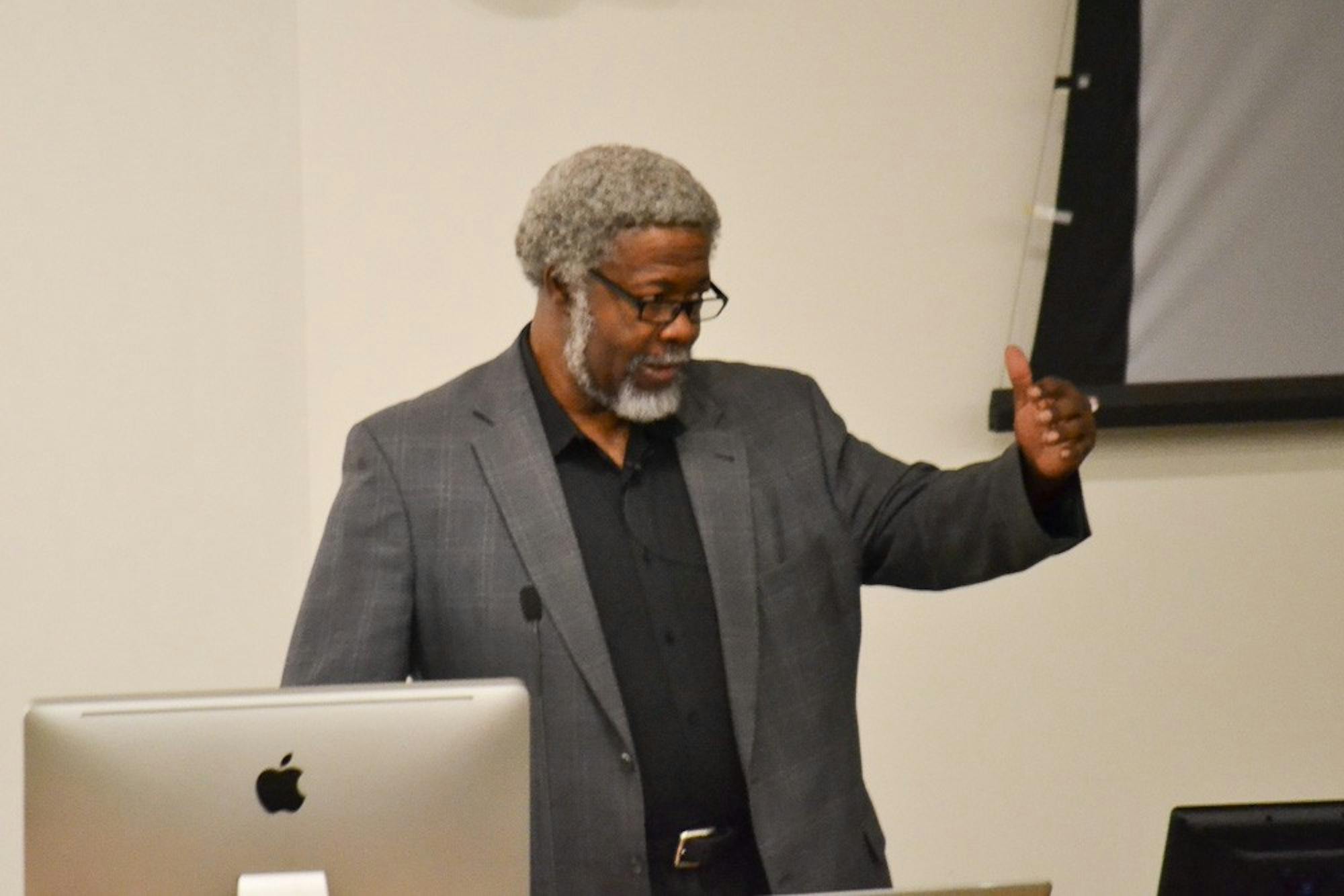Scientists must consider the social and political backgrounds of those they seek to assist, E.E. Just postdoctoral fellow Salvador Almagro-Moreno said Saturday afternoon, explaining that local resources can be used to address disease-stricken communities. For instance, he said, scarves can filter water in areas of India affected by cholera.
Infectious diseases was one of several topics covered at the third annual E.E. Just Symposium this weekend, a two-day event comprising lectures and discussion about STEM fields that focused its theme this year on interdisciplinary creativity in the sciences.
The symposium, named after Class of 1907 graduate Ernest Everett Just, celebrates scientific courage and interdisciplinary research.
College President Phil Hanlon spoke Saturday, saying that the E.E. Just Program at the College has increased the number of minority students in STEM fields.
Physics professor Stephon Alexander, who has directed the symposium since its inception in 2012, said he hopes it draws more attention to the breadth of interdisciplinary research at the College.
“A lot of the times students are only exposed to this one dimension of studies in the classroom if they are questioning whether or not they wanted to go into STEM or become a scientist,” he said. “I wanted to show them what real scientists do in a format they could enjoy.”
Speakers included Sylvester Jim Gates, who serves on President Barack Obama’s Council on Advisors on Science and Technology, Margaret Geller, an astrophysicist at the Harvard-Smithsonian Center for Astrophysics and Andrea Hayes-Jordan ’87, a professor of pediatric surgery at the University of Texas Medical School at Houston, among others.
The lectures were followed by a panel discussion where guest speakers and Dartmouth faculty spoke about creativity in interdisciplinary studies and their own experiences with research and education.
“We need to get back to actually caring about learning, not just getting a job,” said music professor Michael Casey.
Geisel Medical School professor Scott Williams said institutions should work to foster curiosity, which will in turn spark creativity.
Computer science professor Hany Farid said he has seen growing interest in the field. He said he is optimistic for this generation’s understanding of the intersection between science and other studies. The real problem, he said, is that student concern over GPA can overpower their desire to learn.
Symposium attendees included undergraduates, post-doctoral students, community members and students from nearby high schools. About 50 people attended the event, which was held in Oopik Auditorium.
Of seven attendees interviewed, four were graduate students who said the symposium reassured them that any type of creativity within the interdisciplinary studies is necessary for the success or creation of a project.
A number of students from Kimball Union Academy, a high school in Meriden that E. E. Just attended, came to the symposium. Kelley Dole, a parent of a Kimball student, said exposing young people to sophisticated scientists ignites curiosity.
Emily Golitzin ’18 said the symposium addressed her concerns over the applications of her planned double major in physics and music.
“It’s nice knowing that I can integrate both of my passions, I don’t have to choose between them,” Golitzin said.




